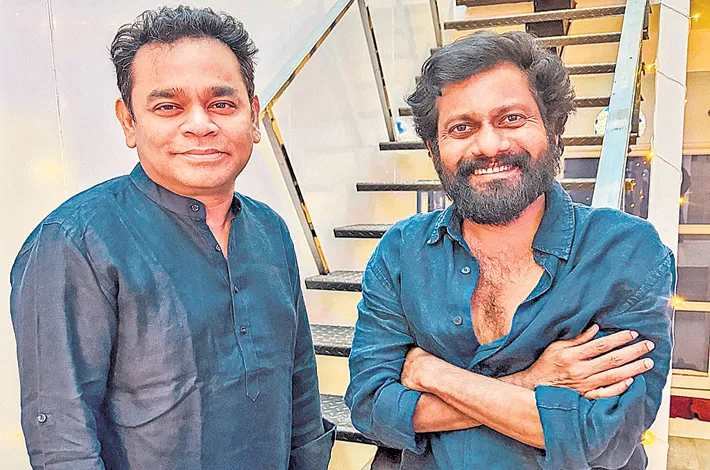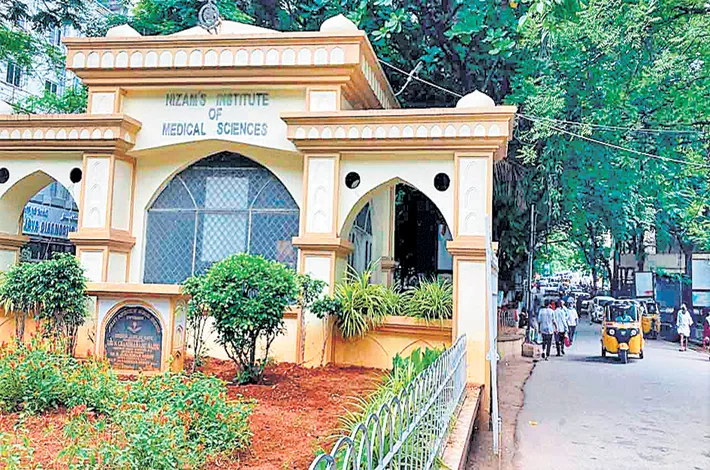Murder in Amaravati
28-03-2025 12:00:00 AM

The victim was Arjun Rao, a prominent real estate tycoon whose empire had shaped Amaravati’s skyline. Vikram arrived at Rao’s sprawling estate, where a crowd of curious onlookers had gathered behind the police tape. Constable Lakshmi, a sharp-eyed rookie with a knack for detail, greeted him with a curt nod. “Sir, the body’s in the study. Single gunshot to the chest. No signs of a struggle.”
In the bustling heart of Amaravati, Andhra Pradesh’s gleaming capital, the sun dipped below the horizon, casting long shadows over the Krishna River. Detective Vikram Reddy adjusted his weathered fedora as he stepped out of his jeep, the dust of the city’s newly paved roads clinging to his boots.
The air was thick with the scent of jasmine and diesel, a strange harmony of tradition and progress. He’d been summoned to the upscale neighborhood of Velagapudi, where the city’s elite resided in glass-fronted mansions. A murder had occurred—an unusual event in a city designed to symbolize a utopian future.
The victim was Arjun Rao, a prominent real estate tycoon whose empire had shaped Amaravati’s skyline. Vikram arrived at Rao’s sprawling estate, where a crowd of curious onlookers had gathered behind the police tape. Constable Lakshmi, a sharp-eyed rookie with a knack for detail, greeted him with a curt nod. “Sir, the body’s in the study. Single gunshot to the chest. No signs of a struggle.”
Vikram stepped into the opulent home, its marble floors reflecting the glow of chandeliers. The study was a shrine to wealth—teak furniture, gold-trimmed bookshelves, and a panoramic view of the river. Arjun Rao lay slumped in a leather chair, his silk kurta stained crimson. A revolver rested on the desk, its barrel still warm. Vikram’s eyes narrowed. “No struggle, you say? Yet the gun’s right here. This wasn’t a break-in.”
Lakshmi handed him a plastic evidence bag containing a crumpled note found in Rao’s pocket. Vikram unfolded it carefully. In jagged Telugu script, it read: “The past catches up. You can’t bury it with concrete.” He rubbed his stubbled chin. “Cryptic. Let’s see who wanted Rao’s past dug up.” The investigation began with the family. Rao’s wife, Priya, sat in the living room, her silk saree impeccable despite her tear-streaked face.
“He had enemies,” she admitted, her voice trembling. “Business rivals, mostly. But he never spoke of threats.” Vikram noted her composure—too polished, perhaps. Next was Rao’s son, Siddharth, a wiry young man with restless hands. “Father was obsessed with his legacy,” he muttered. “Maybe someone didn’t like his vision for Amaravati.”
Vikram’s next stop was Rao’s office in the Secretariat Towers, a gleaming symbol of the city’s ambitions. The staff whispered about a recent fallout with a contractor named Kishore Naidu, whose firm had lost a lucrative government tender to Rao’s company. Vikram tracked Naidu to a dimly lit toddy shop near Undavalli. The man was a bull of a figure, nursing a glass of palm wine. “Rao cheated me,” Naidu growled, his fists tightening. “But I didn’t kill him. I was here all night—ask anyone.”
The alibi checked out, but Vikram’s gut told him the answer lay closer to home. Back at the estate, he reexamined the study. A faint scratch on the desk caught his eye—a mark too deliberate to be random. He pressed it, and a hidden drawer slid open, revealing a stack of yellowed documents. Land deeds, all dated decades ago, from villages swallowed by Amaravati’s expansion. One name stood out: Venkataiah, a farmer whose family had been displaced when Rao acquired the land dirt-cheap.
Vikram dug deeper, cross-referencing records at the local tehsildar’s office. Venkataiah had died years ago, but his daughter, Anjali, now lived in a modest flat in Guntur, just across the river. He drove through the chaotic evening traffic, the city’s half-finished flyovers looming like skeletal giants. Anjali was a quiet woman in her forties, her eyes hardened by years of resentment. “Rao ruined us,” she said, her voice steady. “Took our land, left us with nothing. I wrote him letters, begging for justice. He never replied.”
“Did you visit him last night?” Vikram asked, watching her closely.
Anjali hesitated, then nodded. “I went to confront him. He laughed in my face. I left—angry, but alive he was.”
Her story rang true, yet something gnawed at Vikram. Returning to the estate, he noticed a detail Lakshmi had overlooked: a faint smear of turmeric on the revolver’s grip. It wasn’t from Rao’s hands—they were clean. He recalled Priya’s kitchen, where a jar of turmeric sat open during his earlier visit. A theory clicked into place.
Confronting Priya again, Vikram laid out the evidence. “You knew about the land deals, didn’t you? And the note—‘the past catches up.’ You wrote it, staged it to look like revenge. Anjali’s visit gave you the perfect cover. You shot him, wiped the gun, and planted it back.”
Priya’s facade crumbled. “He was going to leave me,” she confessed, her voice breaking. “For some mistress in Hyderabad. After everything I built with him—our home, our name—I couldn’t let him destroy it.”
Vikram sighed as Lakshmi cuffed her. The city glittered outside, its promise of progress tainted by human greed. Driving back along the river, he tipped his hat to the night. In Amaravati, even the future couldn’t escape the shadows of the past.








